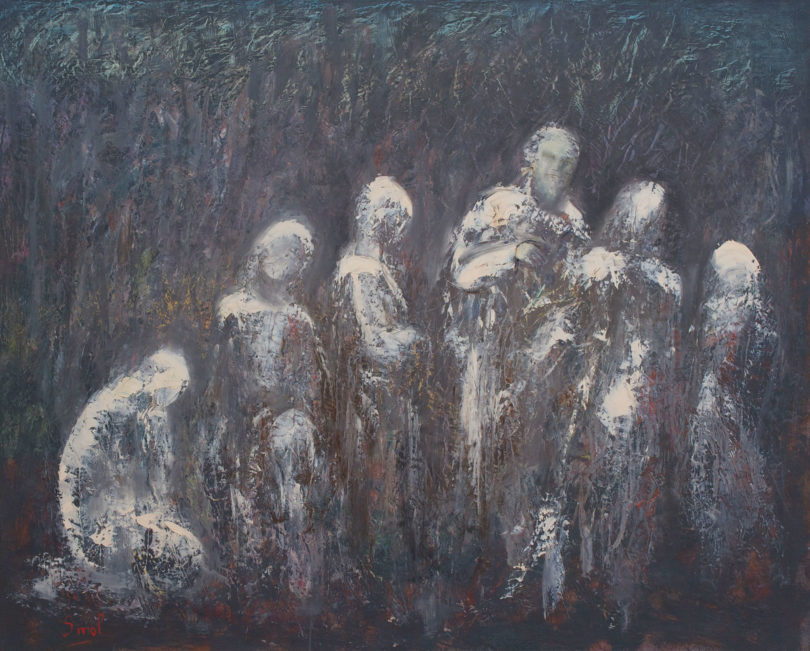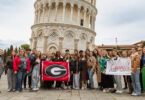Athens, Ga. – The Georgia Museum of Art at the University of Georgia will host the exhibition “Deaccessioning Bernard Smol” May 25 to July 7 in the Martha Thompson Dinos Gallery. The exhibition will feature five paintings by the French artist Bernard Smol (1897-1969) that are currently in the museum’s collection.
Due to limited storage space and evolving collecting philosophy, the museum staff has decided to “deaccession,” or remove from its collection, all but one of Smol’s works. Visitors will be able to vote on which one they would like the museum to keep, and curatorial staff will take those votes into consideration.
All five works are encaustic paintings on canvas of comparable dimensions, styles and significance. Encaustic is a technique of painting with hot beeswax mixed with pigments that creates a translucent but textured surface. The jewel-like quality of Smol’s paintings often drew comparisons to stained-glass windows by critics of his day. His typical subject matter included romantic landscapes and interiors populated with harlequins, dancers, bohemian poets and mystical figures that give the viewer a sense of experiencing a dream. The works have not been shown at GMOA since their initial exhibition in 1959, around the time the museum’s founder and first director, Alfred Heber Holbrook, decided to purchase them. Several of them were loaned to Middle Georgia College shortly thereafter, for a traveling exhibition, but they have been rarely viewed.
The museum’s director, William Underwood Eiland asked the museum’s curators to begin assembling a list of works to consider deaccessioning. Lynn Boland, the museum’s Pierre Daura Curator of European Art, suggested the paintings by Smol as well as mounting this small exhibition to educate the public about the process of removing works from the collection.
“Deaccessioning is never something to take lightly, and we strive to be as careful and transparent as possible,” Boland said. “This exhibition gives us a chance to examine and explain the process while soliciting input from the public on the future of their collection.”
Deaccessioning is a lengthy and complex process. First, the museum must give public notice of its intent. The museum’s collections committee and Board of Advisors and UGA’s president must all approve that intent. Only then can the work be removed from the collection, often to be sold at public auction, to keep the process as transparent as possible. Proceeds, if the works is sold, must be used for acquisitions, to prevent monetizing the collection. Violation of appropriate deaccessioning procedure can lead to sanctions by such professional organizations as the Association of Art Museum Directors, of which GMOA is a member. Sanctions can mean the loss of the ability to borrow works from other museums or even the loss of accreditation by the American Alliance of Museums. Eiland has served on AAMD’s Deaccessioning Task Force and is an expert in the field.
The idea for the exhibition is due to DePaul University in Chicago, which organized a similar deaccessioning exhibition, “The Good, the Bad and the Ugly,” in 2010.
Museum Information
Partial support for the exhibitions and programs at the Georgia Museum of Art is provided by the Georgia Council for the Arts through appropriations of the Georgia General Assembly. The council is a partner agency of the National Endowment for the Arts. Individuals, foundations and corporations provide additional museum support through their gifts to the University of Georgia Foundation. The Georgia Museum of Art is located in the Performing and Visual Arts Complex on the East Campus of the University of Georgia. The address is 90 Carlton St., University of Georgia, Athens, Ga. 30602-6719. For more information, including hours, see www.georgiamuseum.org or call 706/542.GMOA (4662).








